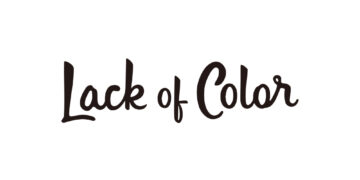The Future of Web Hosting: Predictions and Trends for 2023
Web hosting plays a crucial role in powering the online presence of businesses, organizations, and individuals. As technology continues to evolve at a rapid pace, the world of web hosting is not exempt from change. With each passing year, new innovations and trends emerge, reshaping the industry and driving the way websites are hosted and managed. In this article, we explore the future of web hosting and delve into the predictions and trends that are expected to shape the landscape in 2023. From advancements in cloud hosting to the rise of serverless architecture, we unravel the potential game-changers that will shape the future of web hosting.
Cloud Hosting Takes Center Stage:
Cloud hosting has been on the rise for several years, and its dominance is expected to continue in 2023. The scalability, flexibility, and cost-effectiveness of cloud hosting make it an attractive option for businesses of all sizes. As cloud technology advances, we can expect enhanced performance, improved security measures, and greater integration capabilities with other cloud-based services. Additionally, the increasing adoption of edge computing and the proliferation of edge data centers will further boost the capabilities and accessibility of cloud hosting.
Serverless Architecture Gains Momentum:
Serverless architecture, often referred to as Function as a Service (FaaS), is set to gain significant traction in 2023. This innovative approach eliminates the need for businesses to manage their own servers, allowing them to focus solely on developing and deploying applications. With serverless hosting, businesses pay only for the computing resources they consume, resulting in cost savings and increased efficiency. The scalability and automatic resource allocation offered by serverless architecture make it an ideal choice for organizations seeking agile and scalable hosting solutions.
Increased Focus on Website Speed and Performance:
In an age where attention spans are short, website speed and performance are paramount. Users expect instant access to information and seamless browsing experiences. As a result, web hosting providers will place an increased emphasis on optimizing speed and performance. Technologies like Content Delivery Networks (CDNs), caching mechanisms, and advanced caching algorithms will be leveraged to deliver faster-loading websites. Additionally, the adoption of HTTP/3 and the growing use of WebAssembly will further enhance website performance, enabling richer and more interactive experiences.
Enhanced Security Measures:
With the rising number of cybersecurity threats, web hosting providers will continue to invest in robust security measures. In 2023, we can expect increased adoption of secure socket layers (SSL) and Transport Layer Security (TLS) protocols to encrypt data transmissions, ensuring secure communication between websites and users. Additionally, the implementation of advanced intrusion detection and prevention systems, real-time monitoring, and artificial intelligence-based security solutions will bolster website security and protect against evolving threats.
Green Hosting and Sustainable Practices:
In an era of increased environmental consciousness, the web hosting industry is moving towards greener and more sustainable practices. Hosting providers are actively seeking ways to minimize carbon emissions, reduce energy consumption, and adopt renewable energy sources. Data centers powered by solar, wind, or hydroelectric energy are becoming increasingly common. Moreover, advancements in energy-efficient server technologies, such as low-power processors and liquid cooling systems, will contribute to a greener hosting ecosystem in 2023.
Voice-Activated Hosting and IoT Integration:
The proliferation of voice-activated assistants and smart devices has opened new avenues for web hosting. In 2023, we can expect increased integration between hosting platforms and voice-activated technologies. Voice-activated hosting interfaces will allow users to manage their websites, make updates, and perform various hosting-related tasks using voice commands. Furthermore, the Internet of Things (IoT) will continue to play a significant role in web hosting. As IoT devices become more prevalent, hosting providers will develop specialized hosting solutions to accommodate the increased data traffic and unique requirements of IoT applications.
Containerization and Microservices Architecture:
Containerization and microservices architecture have gained significant traction in recent years and will continue to shape the future of web hosting in 2023. Containerization, facilitated by technologies like Docker and Kubernetes, enables efficient deployment and management of applications across different environments. This approach promotes scalability, flexibility, and seamless integration of services, making it an ideal choice for modern web hosting.
Microservices architecture complements containerization by breaking down complex applications into smaller, independent services. This modular approach allows for easier scalability, enhanced fault tolerance, and faster development cycles. Hosting providers will continue to adopt containerization and microservices architecture to offer more agile and scalable hosting solutions.
Artificial Intelligence and Automation:
Artificial intelligence (AI) and automation will revolutionize web hosting in 2023. AI-powered tools will streamline various hosting tasks, such as resource allocation, load balancing, security monitoring, and performance optimization. Automated processes will reduce human intervention, improve efficiency, and enhance the overall hosting experience. AI algorithms will also play a crucial role in detecting and mitigating security threats, enabling proactive defense mechanisms to safeguard websites and user data.
Enhanced Data Privacy and Compliance:
With the increasing focus on data privacy and regulatory compliance, web hosting providers will prioritize robust data protection measures. In 2023, we can expect hosting services to offer enhanced data encryption, secure backups, and strict access controls to safeguard sensitive information. Compliance with data protection regulations, such as GDPR and CCPA, will be a crucial aspect of web hosting, ensuring that customer data is handled with utmost care and in accordance with legal requirements.
As we look toward the future of web hosting in 2023, it is evident that significant advancements and trends will shape the industry. Cloud hosting, serverless architecture, website speed optimization, enhanced security measures, green hosting practices, voice-activated hosting, containerization, AI and automation, and data privacy compliance are all poised to transform the web hosting landscape. Embracing these trends will empower businesses and individuals to create and manage online experiences that are secure, scalable, and tailored to meet the evolving needs of users in an increasingly digital world.



No Comments
Leave Comment